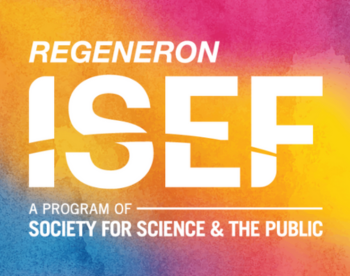27 Biology Research Topics Suitable for High School Students
[elementor-template id="1670"]
Biology is the science that studies life and its phenomena, covering a wide range of areas from the molecular level to entire ecosystems. It explores aspects such as the structure, function, growth, origin, evolution, and distribution of living organisms. Biology examines not only how individual cells or organisms function but also how communities, ecosystems, and organisms interact with their environments. For high school students, biology is a vast and profound subject, and this diversity makes it an attractive and valuable field for research.
Through biology research, high school students can delve deeper into the mysteries of nature, fostering scientific thinking and analytical skills. Research in biology can help students better understand biological processes, develop laboratory skills, and build a solid foundation for future academic or career pursuits. Additionally, biology research can spark students’ interest in science, nurturing a spirit of inquiry and innovation.
How do high school students start biological research?
When choosing a research direction in biology, high school students might start by exploring subfields that interest them, such as cell biology, genetics, ecology, or behavioral science. Each field has unique appeal and research questions waiting to be uncovered. Finding a direction that aligns with your interests and background can make the entire research process more enjoyable and fulfilling.
Before starting, it’s essential to understand the relevant research methods and laboratory techniques, as biology research often involves experimental observation, data collection, and analysis. To acquire these skills, you can read scientific literature, take laboratory courses, or seek guidance from experienced mentors.
Creating a detailed research plan is also a necessary step. You’ll need to define your research objectives clearly, choose appropriate research subjects and methods, and organize your schedule and resources effectively. This preparation not only helps you systematically conduct the research but also ensures that the research proceeds smoothly.
Finally, don’t forget to present and share your research findings. You can do this through a research report, a display board, or by participating in academic conferences. This process hones your communication skills and allows you to improve your research based on feedback.
In this guide, Embark biology mentors offer 27 research ideas across various biology subfields for high school students to consider. These topics span multiple aspects of biology, aiming to inspire students’ curiosity and provide research ideas. We hope these suggestions help students embark on their journey into biological research!
Research Topic 1: Cell Structure and Function
Cells are the fundamental units of life, and understanding their structure and function is foundational in biology. Studying the structure and function of cell membranes can reveal how they control the entry and exit of substances, maintaining stability within and outside of cells. Mitochondria, known as the cell's powerhouses, continuously generate ATP through complex biochemical reactions, ensuring the cell's energy supply. Chromosomes carry genetic information and control cell growth and division through gene expression. Exploring these areas deeply can help us understand the mysteries of life and support advances in medicine and biotechnology. High school students can deepen their knowledge of cell biology and develop lab skills and analytical abilities through these studies. Research ideas include:
1.Structure and Function of Cell Membranes: Explore how cell membranes control the movement of substances in and out of cells.
2.Mitochondrial Energy Metabolism: Investigate how mitochondria produce ATP and maintain the cell's energy supply.
3.Chromosomes and Gene Expression: Study how chromosomes carry genetic information and control gene expression.
Research Topic 2: Genetics and Gene Editing
Genetics explores the transmission and variation of biological information, while gene-editing technology provides the ability to alter genetic traits. Researching the mechanisms of DNA replication and repair can shed light on how genetic information is precisely transferred and how damage is repaired. The genetic diagnosis of hereditary diseases aids in the early detection and treatment of these conditions through genetic testing. Gene-editing technology, like CRISPR-Cas9, has sparked ethical debates, and exploring these issues can provide insight into the societal impact of these technologies. High school students can understand the fundamentals of genetics, learn about gene-editing techniques, and contemplate the ethical implications of technological advancements through these studies. Research ideas include:
4. Mechanisms of DNA Replication and Repair: Study how DNA replicates and repairs damage.
5. Genetic Diagnosis of Hereditary Diseases: Explore how genetic testing diagnoses hereditary diseases.
6. Ethical Issues of Gene-Editing Technology: Analyze the ethical debates surrounding gene-editing technologies like CRISPR-Cas9.
Research Topic 3: Ecosystems and Conservation Biology
Ecosystems consist of biological communities and their non-living environments, while conservation biology focuses on preserving and restoring biodiversity. Studying the principles of ecological niches and competitive exclusion reveals the roles of species within ecosystems and their competitive relationships. Researching the carbon cycle in forest ecosystems can help understand their role in regulating climate change. The study of wetland ecosystem conservation highlights its importance in maintaining biodiversity and ecological balance. High school students can gain an understanding of ecosystem complexity, develop environmental awareness, and improve data analysis skills through these studies. Research ideas include:
7. Ecological Niches and Competitive Exclusion Principles: Examine species' roles within ecosystems and their competitive relationships.
8. Carbon Cycle in Forest Ecosystems: Investigate how forests absorb and store carbon dioxide.
9. Conservation of Wetland Ecosystems: Study the importance and conservation measures of wetland ecosystems.
Research Topic 4: Plant Physiology and Ecology
Plants play vital roles in ecosystems, and understanding their physiological and ecological characteristics helps protect biodiversity. Research on photosynthesis and photoperiodism reveals how plants utilize light energy for photosynthesis and their relationship with the environment. The study of water-use efficiency in plants explores how plants adapt to drought conditions. Research on the succession process in plant communities analyzes the factors that influence plant community changes over time and their ecological impacts. High school students can gain foundational knowledge of plant physiology, understand plant-environment interactions, and improve experimental design skills through these studies. Research ideas include:
10. Photosynthesis and Photoperiodism: Study how plants utilize light energy for photosynthesis and its relationship with photoperiodism.
11. Water-Use Efficiency in Plants: Explore how plants efficiently use water to adapt to drought conditions.
12. Succession Process in Plant Communities: Investigate the process of plant community changes over time and the influencing factors.
Research Topic 5: Animal Behavior
Animal behavior studies focus on the patterns of animal actions and their ecological and evolutionary significance. Research on the division of labor and cooperation mechanisms in social insects, such as bees and ants, reveals social structures and cooperative behaviors. Studies on bird migration explore migration routes, reasons, and physiological foundations. Analyses of mating and reproductive behavior examine how mating strategies impact reproductive success. Through these studies, high school students can gain insights into the diversity of animal behaviors, enhance observation and analytical skills, and consider how behaviors help animals adapt to their environment. Key research areas include:
13.Division of Labor and Cooperation in Social Insects: Studying how bees, ants, and other social insects organize and cooperate.
14.Bird Migration Behavior: Exploring migration patterns, reasons for migration, and physiological factors.
15.Mating and Reproductive Behavior: Investigating how animals' mating strategies affect their reproductive outcomes.
[elementor-template id="1677"]
Research Topic 6: Human Physiology and Health
Understanding human physiological mechanisms and their connection to health can improve quality of life. Research on the immune system shows how it defends against pathogens and relates to disease. Endocrine system studies examine how hormones regulate bodily functions, while nervous system research explores how it coordinates behaviors. High school students can gain a fundamental understanding of human physiology, grasp the relationship between health and disease, and develop research skills. Key research areas include:
16.Immune System and Disease Defense: Investigating how the immune system combats pathogens and its role in health.
17.Endocrine System and Hormone Regulation: Exploring hormone regulation of bodily functions.
18.Nervous System and Behavior: Analyzing how the nervous system controls and coordinates actions.
Research Topic 7: Microbiology and Antibiotics
Microbiology studies microorganisms’ types, structures, functions, and their relationships with the environment and humans. Research on bacterial resistance reveals how bacteria develop resistance to antibiotics. Studies on fungi explore their role in decomposing organic matter and recycling nutrients. Virus infection and immune response research examines how viruses infect host cells and trigger immune reactions. High school students can learn about the basic characteristics of microorganisms, acquire microbiology lab skills, and consider the ethical implications of antibiotic use. Key research areas include:
19.Bacterial Resistance Mechanisms: Studying how bacteria develop resistance to antibiotics.
20.Role of Fungi in Ecosystems: Exploring fungi’s role in decomposition and nutrient cycling.
21.Viral Infection and Immune Response: Analyzing how viruses infect cells and provoke immune responses.
Research Topic 8: Biotechnology and Applications
Biotechnology applies biological principles and techniques to solve real-world problems. Research on genetic engineering and genetically modified crops explores agricultural applications and controversies. Biofuel production studies analyze prospects for microbial biofuel production. Medical biotechnology research examines its role in diagnosing and treating diseases. High school students can learn about biotechnology applications, develop innovative thinking and practical skills, and reflect on the social impact of technological advances. Key research areas include:
22.Genetic Engineering and GM Crops: Examining genetic engineering’s applications in agriculture and related controversies.
23.Biofuel Production: Studying microbial biofuel production and its potential users.
24.Medica lBiotechnology: Analyzing biotechnology’s role in diagnosing and treating illnesses.
Research Topic 9: Evolutionary Biology
Evolutionary biology explores the origins, evolution, and adaptation mechanisms of species. Studies on the origin and differentiation of species investigate how species evolve through natural selection and genetic variation. Evolutionary psychology examines how human behaviors evolved to adapt to environments. Molecular evolution evidence reveals evolutionary relationships through genes and protein sequences. High school students can build a foundation in evolutionary biology concepts, understand species evolution processes, and improve logical and analytical skills. Key research areas include:
25.Origin and Differentiation of Species: Studying how species evolve through natural selection and genetic variation.
26.Evolutionary Psychology and Behavior: Analyzing how human behaviors adapted through evolution.
27.Evidence of Molecular Evolution: Investigating evolutionary relationships through genes and proteins.
You can view more biology research topics suitable for high school students here.
Another Option - Embark Exploration Program
Embark, established in 2016, is an educational institution focused on providing customized scientific research training for young people. The core team members are graduates from top universities in the United States. Embark has over 3,000 mentors from prestigious institutions such as the Ivy League, MIT, Caltech, Johns Hopkins University, and Carnegie Mellon University.
Embark offers personalized one-on-one research guidance, tailoring research topics to the interests of each student. Embark helps students systematically develop research skills, build a solid research framework, integrate research with real-world applications, understand the value of research, and enhance their problem-solving abilities. All of this contributes to strengthening their college applications.
For more information, please visit the Embark Exploration Program. If you have any questions or need further information, feel free to contact us. We would be happy to assist you and discuss collaboration opportunities.
[elementor-template id="1682"]



